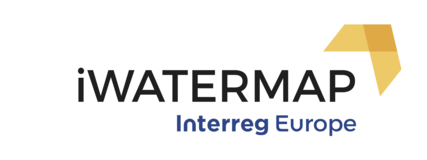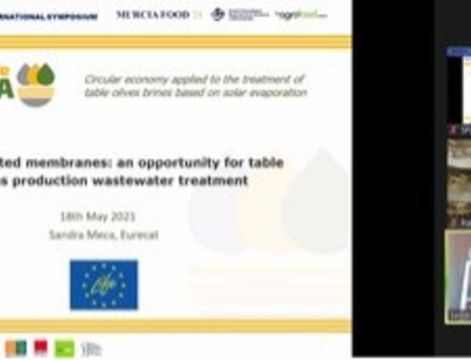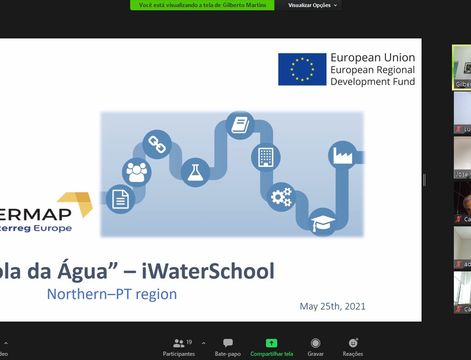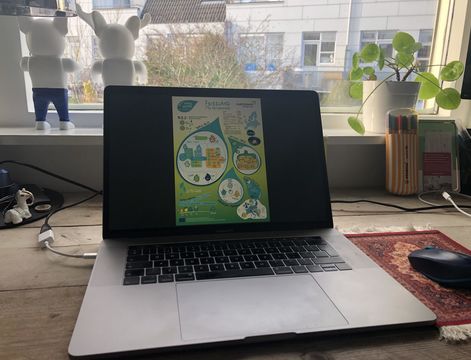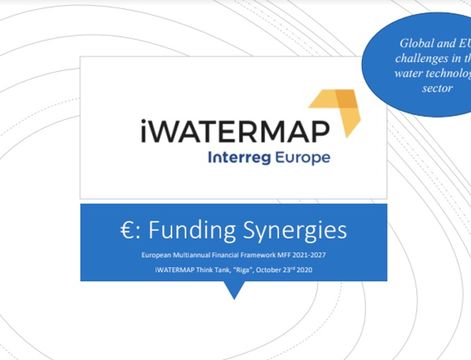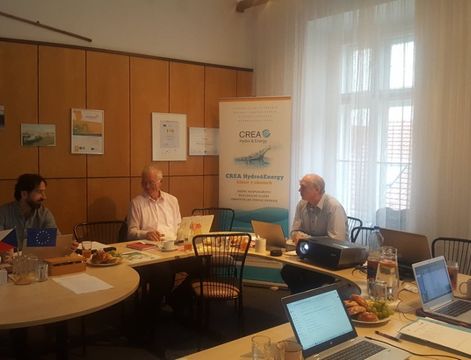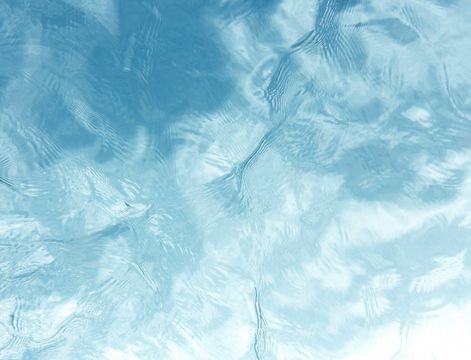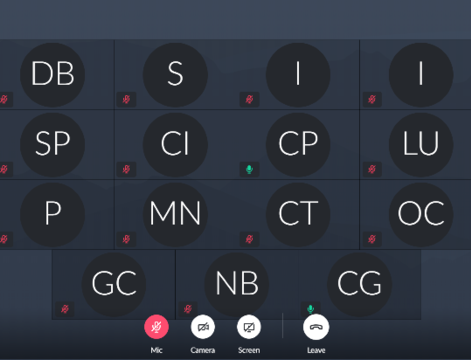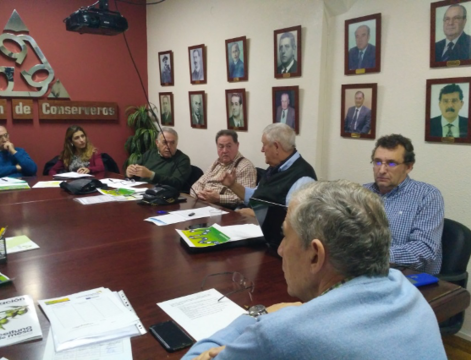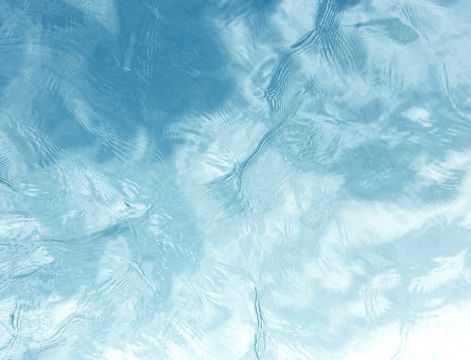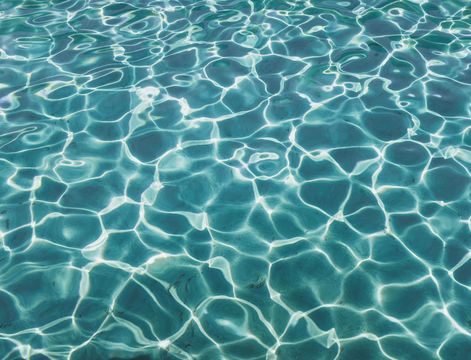Location: Auditorium of the Department of Biological Engineering, University of Minho,
Participants: There were invited about 25 different entities representing the triple‐helix (both local and regional administration, representatives from the other universities and polytechnic institutes, sectorial clusters (agrofood and water) and private companies). In the meeting participated 17 persons from 12 different entities.
Outcomes:
The meeting started by a brief presentation of Centre of Biological Engineering given by our president, Professor Eugénio Ferreira, then Madalena Alves gave an introduction to WETSUS, the lead partner of the project, and Gilberto presented the iWATERMAP project. This presentation showed the iWATERMAP participating partners and the expected activities during the execution of the project. After, it was proposed to all seminar participants to present themselves. In brief, all participants highlighted iWATERMAP as an important mean to influence the regional administration in the definition of the future versions of ROP. After the coffee break, it was presented to the participants the same presentation given in September 25th during the iWATERMAP kick‐off meeting in Leeuwarden. In the end, a debate about the opportunities for Northern region within iWATERMAP was performed. From the debate the following comments/suggestions were done: ‐ To involve at a forthcoming meeting the ARHnorte (Northern Administration of Hydric Resources), the Regional Directorate for Agriculture and Fisheries of the North, the Regional Directorate of Food and Veterinary of the North as well as the Portuguese Catholic University located in Oporto. ‐ After, a great discussion around the Colabs program occurred ‐> projects led by private companies with the objective to contract R & D & I services to promote the integration of PhDs in the companies. The Colabs were based on the German example of Fraunhofer Institute. An important point for Colab success will be the adaptation to the national reality. For example, PhD formation and integration in private companies promoted by former programmes had a poor level of achievement, which is expected to be accelerated and more effective in the Colab model. Colabs will be focused on business R & D & I needs. ‐ The problem of codigestion of waste (for example with sewage sludge) was also addressed. Legislative barriers and the lack of definition on the entities responsible for the licensing of waste uses was identified as the main problems. ‐ Regarding vocational schools (VET), and the lack of focus on water technology, the Technological Specialization courses taught by polytechnic institutes were discussed as an alternative. Also, and reinforcing the need to revise the educational offer of VET schools, the company Águas do Norte stated that due to the lack of adequacy of the new employees, a project called "Caudal" was created inside the company, with the purpose of giving initial training to new employees. ‐ The focus of the project in the northern region was also discussed. It was asked if it would only address projects related to water in agrofood industry, or water in general. Our answer was that the focus will be on agrofood industry due to RIS3 priorities, but water as a whole enters the agricultural cycle, so any project that includes water in agrofood, could be framed.
‐ It was suggested to review the docuements of the strategic evaluation of the ROP Norte 2020. (with the purpose of improving the present version of the ROP). Also, the regional agenda for the circular economy is drawing up a survey on regional metabolism (there will be a balance to the water entering and leaving the region and how it is transformed within the region). ‐ About the internationalization roadmap, it was questioned on how it will be operationalized. Will be based iWATERMAP partners network or also linking the stakeholders network, or otherwise? ‐ It was also referred the definition of water as a non‐technological resource as it appears in RIS3. Some stakeholders agree with the definition of RIS3 because water is indeed a natural resource. However, it was argued that, in the water cycle, technology and technological innovation should be explicitly considered in RIS3 given the existing and potential critical mass in the region. ‐ It was further suggested that iWATERMAP closely follow the activities of slaughterhouses and dairies industries, due to the high water consumption and wastewater production. These activities have at present poor wastewater treatment levels. ‐ Finally, there was a suggestion to take advantage of the outputs and accumulated experience of previous similar projects in the elaboration of roadmaps and action plan (e.g. NOVIWAM project, a FP7 project) where the northern region had an active participation with 3 partners (UMinho, Simbiente and ARHnorte).
